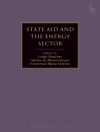The modern-day world faces a hostile climate, depleted resources and the destruction of habitats. The dream that growth will lead to a materialistic utopia is left unfulfilled by a lack of ecological and economic capacity. The only choice is to find alternatives to increased growth, transform the structures and institutions currently shaping the world, change lifestyles and articulate a more credible vision for the future and lasting prosperity. As a reaction to the problems accrued by capitalism, new development approaches such as the concept of degrowth have evolved.
Degrowth in Tourism explores newly-emerging development and philosophical approachesthat provide more equity for host communities and offer a low-carbon future by looking at alternatives to the classic models of development and applying the concept of degrowth in a tourism context. Proposing that we need to shift tourism research from models which prioritize commodified tourism experiences to those that offer alternative decommodified ones, this book:
— Provides topical analysis and illustrates the key themes of degrowth;
— Discusses the relationship between tourism and degrowth from both a historic perspective and through contemporary patterns of activity;
— Includes international examples and case studies to translate theory into practical new approaches.
A comprehensive review of the subject, this book will be of great interest to researchers and practitioners within tourism, development, environment and economics, as well as those specifically studying degrowth.
Об авторе
Konstantinos Andriotis is a Professor in Tourism at Middlesex University London. He holds a Ph D in Tourism Development and Planning (Bournemouth University, 2000) and a Post Doc in Tourism Marketing (Hellenic Open University, 2006). He edits the ‘International Journal of Tourism Policy’, the ‘Journal of Qualitative Research in Tourism’ and the CABI Regional Tourism Series. He has an h-index of 32 and more than 4500 citations. He was listed in the Stanford University list of top 2 per cent of scientists in the World. His research interests include tourism development and planning, alternative forms of tourism, tourism experience and degrowth.












